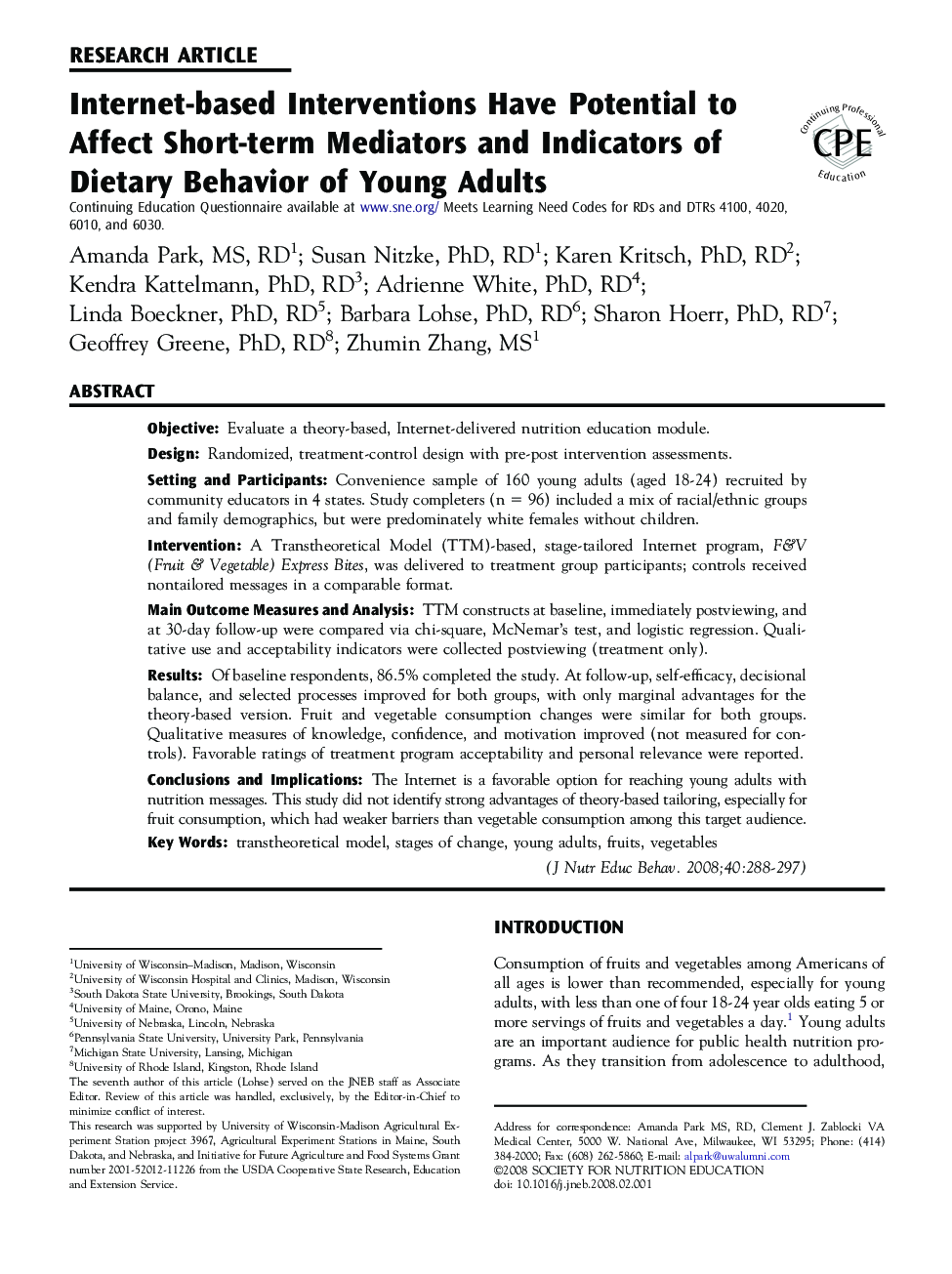| Article ID | Journal | Published Year | Pages | File Type |
|---|---|---|---|---|
| 363247 | Journal of Nutrition Education and Behavior | 2008 | 10 Pages |
ObjectiveEvaluate a theory-based, Internet-delivered nutrition education module.DesignRandomized, treatment-control design with pre-post intervention assessments.Setting and ParticipantsConvenience sample of 160 young adults (aged 18-24) recruited by community educators in 4 states. Study completers (n = 96) included a mix of racial/ethnic groups and family demographics, but were predominately white females without children.InterventionA Transtheoretical Model (TTM)-based, stage-tailored Internet program, F&V (Fruit & Vegetable) Express Bites, was delivered to treatment group participants; controls received nontailored messages in a comparable format.Main Outcome Measures and AnalysisTTM constructs at baseline, immediately postviewing, and at 30-day follow-up were compared via chi-square, McNemar's test, and logistic regression. Qualitative use and acceptability indicators were collected postviewing (treatment only).ResultsOf baseline respondents, 86.5% completed the study. At follow-up, self-efficacy, decisional balance, and selected processes improved for both groups, with only marginal advantages for the theory-based version. Fruit and vegetable consumption changes were similar for both groups. Qualitative measures of knowledge, confidence, and motivation improved (not measured for controls). Favorable ratings of treatment program acceptability and personal relevance were reported.Conclusions and ImplicationsThe Internet is a favorable option for reaching young adults with nutrition messages. This study did not identify strong advantages of theory-based tailoring, especially for fruit consumption, which had weaker barriers than vegetable consumption among this target audience.
